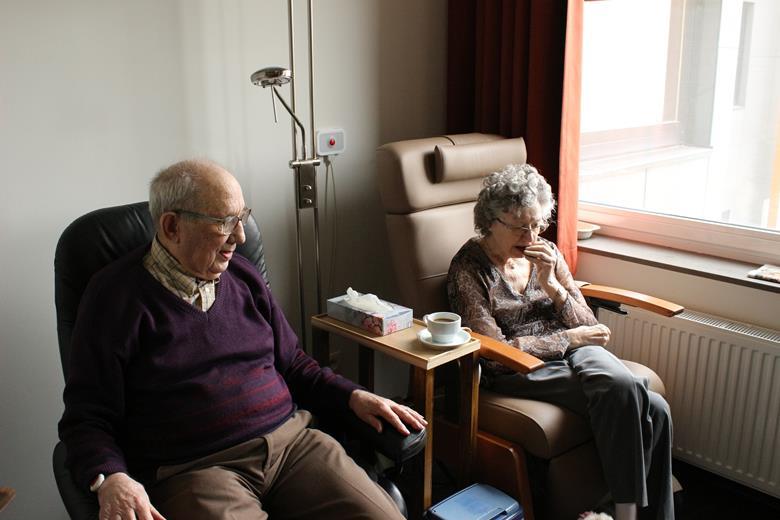Realising that you or a loved one can no longer cope at home independently is one of life’s defining moments. But let’s be honest; it’s also a largely symbolic event. In fact, the defining decision lies in choosing the type of care and the care provider that will restore independence and dignity in those latter years of life.
Just because support at home is required doesn’t mean that your golden years can’t be a rich and fulfilling time. Quite the opposite, actually; with the right care in place, you’ll find your freedom renewed and your vigour for life reclaimed.
But how to choose the appropriate care for your or your loved one’s unique needs? Here’s the enquiries you should be making of any potential care providers; these questions to ask when choosing a home care agency for your elderly loved one.
Are You Fully Regulated & Part Of UKHCA?
Let’s flip things on their head here and firstly deal with the fine print which usually ends such articles. Because, above all else, you’re going to want to ensure that your potential home care provider is safe, secure and 100% trustworthy. For a loved one, and for yourself, it’s the number one priority.
So, make sure you establish whether the company is regulated by the Care Quality Commission, who are the independent regulator of health and social care in England. The commission inspects and regulates services, provides reports and have a published set of fundamental standards which any care home and home care agency must adhere to.
You can search the CQC’s database here, entering the name of the agency you’re considering, to view reports on the quality of care they provide. Alternatively, you can simply search your postcode and see all available home care agencies in your location, with reports on their care provided. These reports offer information on five key categories:
- Safe
- Effective
- Caring
- Responsive
- Well led
These assessments are judged on a sliding scale between Outstanding, Good, Requires Improvement, Inadequate and No Rating; invaluable information for those looking to be meticulous in their decision making. The database also lists any specialisms the home care agency offers.
To double down on your due diligence, also ensure that your considered home care agency is a member of the United Kingdom Homecare Association (UKHCA), who publish a Codes of Practice which all members must adhere to.

What Background Checks Do You Give Your Carers?
Speaking of which, the UKHCA have also recently published guidelines on background (DBS) checks which all carers should undergo. Any reputable home care agency will carry out Enhanced Disclosure checks on all carers, which is a legal necessity for anyone working with the young, the elderly or the vulnerable. Do ask your home care agency to provide information about background checks carried out as a matter of course.
What Type Of Care Do You Offer & What Type Do I Need?
It’s best to prepare a list of questions that will help you determine if the agency offers the level and type of care that you need, whether those needs are physical, mental, or psychological.
Care in the home comes in many different guises, from the occasional visit and check-up to more committed, live-in care, so it’s first important to ask yourself what type of care is required.
The most common forms of care involve daily visits, which last for around half an hour, or visits known as ‘sitting’, which last for a few hours each day, as well as live-in care, when the carer lives in the home and provides round-the-clock care. This care can be arranged even if you, too, live with your elderly relative. These visits will generally occur at the same time (agreed by carer and client) each day, though some flexibility can, of course, be expected.
According to Ashberry Care Homes, the types of care you can expect can be broken down further, into seven key categories:
- Personal Care
- Companionship Care
- Dementia Care
- Respite Home Care
- Live-in Care
- Nursing Care
- Shared Lives
On top of that, hospice or end of life palliative care is another option available, should the client wish to live their final days peacefully and comfortably at home. Having professional, expertly trained support in hospice care provides huge comfort to many families, as it enables loved ones to maintain a sense of dignity and control over the last months, weeks or even days of their life.
There are also more dedicated areas of expertise which specifically trained carers can assist with…
Do You Match Carers To Clients Based On Specific Expertise?
Try to choose an agency that matches the caregivers to the clients based on their expertise, ability to tend to their physical and psychological needs, preferences, and interests. It would be best if the agency facilitates an introduction between carer(s) and client and their family before they are officially hired.
Home care agencies often provide specialist care for clients suffering from specific conditions or ailments, and carers assigned to these roles should have extensive experience working with appropriate clients in the past. These care agencies use care management software to manage multiple things at a time, so should be able to provide detailed knowledge of the expertise of their staff. Do ask your agency if such experience has been accrued, if your loved one has specific needs.
Some of the most common home care specialisms include dementia care (as we noted above), learning disabilities, physical disabilities, sensory impairments, and mental health conditions. Using the CQC database we mentioned earlier, you can search for home care providers specifically by their areas of expertise.

How Much Do You Value Continuity Of Care?
Unfortunately, it’s not always possible that clients will receive the same carer for the entirety of the time that care is deemed necessary. That said, some home care agencies place more emphasis on continuity of care than others, so it’s important to ask your potential provider about their policy regarding carer continuity.
Finally, Can I See A Breakdown Of Your Pricing?
Prices typically vary according to the level and type of care needed, the carer’s level of expertise, the duties they will be performing, and whether they are medical carers.
On average, care at home costs begin at between £15 and £20 an hour, though this will vary depending on where you live. You may well be eligible for help with the costs, and you can contact your local council to ask for this financial assistance. They will carry out a means test, and following this, could agree to covering some or all of your care fees.
Check out Age UK’s detailed breakdown of what this process involves for more.
The Bottom Line
Choosing the right home carer for yourself or a loved one can be a challenging, trying task. There are many home care agencies that provide different types of hands-off, hands-on, and medical services, each with something different to offer.
Before you determine the right level of care and the right caregiver for your needs, take stock of your own (or your loved one’s situation), chat to several providers, and check reports from official regulatory bodies online. This should give you peace of mind going forward that you’re making the best decision. Good luck.





